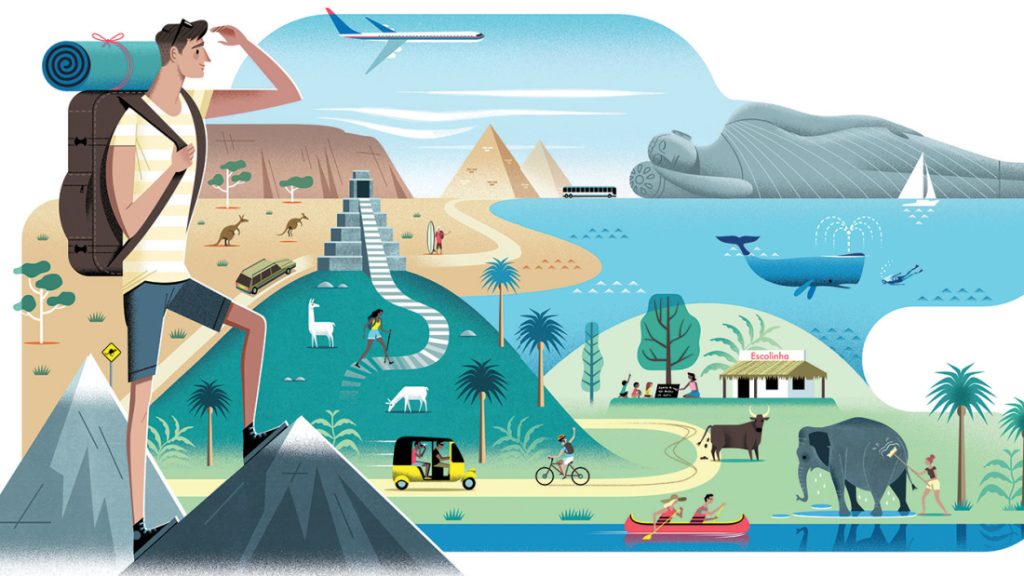How the Pandemic and AI are Shaping the Future Career Paths of Student-Athletes

The job market for recent graduates has been evolving rapidly, and as a student-athlete about to enter the workforce, the path ahead can feel uncertain. With rising competition and shifts in hiring trends due to the rise of artificial intelligence (AI), you might be wondering where your unique skills fit into this new landscape.
In this post-pandemic world, the job market for recent graduates has faced numerous hurdles, including a 6.6% unemployment rate in 2025, a figure that reflects the challenges many face when transitioning from academia to full-time employment. As a student-athlete, the sudden shift from a highly structured life filled with practice, training, and schoolwork, to navigating the unstructured corporate world, can be an overwhelming experience.
But here’s the good news: You already possess several qualities that are highly valued by employers, and you can use these traits to your advantage as you begin your post-graduation journey.
AI is Changing the Job Landscape
Artificial intelligence is one of the main disruptors in the modern job market. Many entry-level roles are increasingly being filled by AI, which automates tasks that were once essential stepping stones for newcomers to the workforce. With the growing presence of AI, hiring for junior positions has dropped, especially at major tech firms where entry-level hiring has fallen by 50% since 2019. This means that, as a student-athlete, you are now entering a market where adaptability and critical thinking are more important than ever before. While AI is reshaping many industries, it’s also creating new opportunities and roles that require human insight and creativity—skills that you, as a student-athlete, already possess.
The Strengths You Bring to the Table
Being a student-athlete means you already have an edge in the job market. The discipline, teamwork, resilience, and time management that are ingrained in your daily life have direct parallels to what employers are looking for. These skills will help you adapt to the demands of corporate life, particularly in industries where flexibility, leadership, and perseverance are essential.
According to a Gallup study, former student-athletes are more likely to thrive in their careers compared to their peers, with 82% of former student-athletes working full- or part-time in jobs at their desired level. This is a testament to the transferable skills you’ve developed through your athletic experience. Employers recognize these attributes, especially your ability to perform under pressure, work with diverse teams, and push through adversity—traits that are particularly important in today’s fast-changing job market.
Leveraging AI and Networking for Your Career
While AI is playing an increasing role in many industries, it’s essential not to underestimate the power of networking. Your college network—coaches, teammates, and alumni—can be instrumental in helping you transition from athlete to professional. Alumni associations and mentorship programs are excellent resources, as many former athletes are eager to help you succeed in your post-college career.
Additionally, AI tools, such as LinkedIn, can be extremely beneficial in tailoring your resume, reaching out to potential employers, and enhancing your online presence. The key to success is not just using AI to optimize your resume, but also staying proactive in building relationships. Whether it’s joining industry-specific groups, reaching out to alumni for advice, or simply keeping up with relevant trends, staying visible and engaged on platforms like LinkedIn can give you a leg up in the hiring process.
The Importance of Gaining Real-World Experience
Just as you gained experience on the field through practice and competitions, gaining real-world experience through internships, job shadowing, or even temporary work will help you build the expertise needed for your future career. Taking a gap year, as some recent graduates have done, can be a great way to explore different career options, especially if you’re not yet sure which path you want to follow. Even if you’re focused on a career in sports management, marketing, or coaching, internships or volunteer opportunities related to your degree will help you hone specific skills and build your professional network.
Making the Transition: What’s Next?
In the world of AI and automation, the entry-level job market is more competitive than ever. But as a student-athlete, you’ve already been trained to rise to the challenge. You’ve learned the importance of resilience, how to adapt to new environments, and how to work as part of a team. These traits will help you excel in a job market that’s demanding but filled with opportunities for those who are prepared.
The bottom line: while AI is changing the workforce, it’s also helping to open up new paths for innovation, creativity, and human-centered roles. With the right mindset, leveraging the skills you’ve developed as a student-athlete, and using AI as a tool to get noticed, you’ll be well-positioned to carve out your place in this new job market.
As you approach the end of your collegiate career, remember that the transition to the workforce is not just about finding a job—it’s about using the lessons you’ve learned in athletics to succeed in your next chapter.

